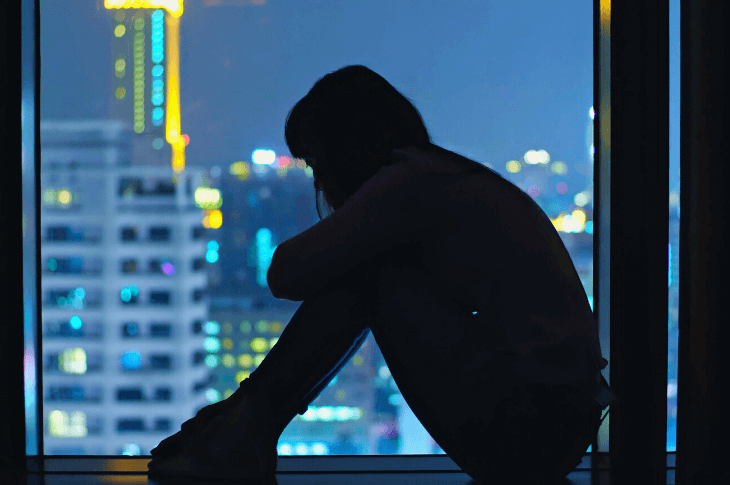
Depression is a type of mental illness that can interfere with daily activities, including work and personal life. This condition is complicated and each individual may experience different symptoms depending on its severity, type, and cause. Erasing the stigma and misconceptions that surround depression is essential as many sufferers avoid reaching out for help due to their fear of embarrassment or judgement.
What is depression?
A person with depression typically experiences prolonged feelings of sadness and hopelessness. This is different from having a few hard days, which happens to everyone from time to time. Depression is a condition that can occur at any age to a person of any gender. In fact, it's estimated that approximately one in 10 people will experience depression in their lifetime. Developing this condition can be incredibly dangerous as some people’s symptoms become so severe that they think about or attempt to take their own lives. In 2020, over 5.2K deaths by suicide were recorded in England and Wales.
What are the other types of depression?
In addition to clinical depression, there are other types of depression that may present specific symptoms or occur in particular circumstances.
Seasonal affective disorder (SAD)
Seasonal affective disorder is a type of depression that only occurs at certain times of the year. Winter is the most common period for symptoms of SAD to occur. This is typically due to the shorter days, prolonged periods of darkness, and reduced amounts of outdoor time.
Postpartum depression
Postpartum depression can occur in any parent of a newborn, most commonly in mothers. It presents shortly after giving birth and is similar to other types of depression in terms of symptoms and treatment options. This can be particularly difficult to deal with as new motherhood is commonly thought of as a happy, joyful time. New parents experiencing postpartum depression may feel ashamed and angry about developing the condition, despite it being through no fault of their own.
Manic depression
Manic depression is another term for bipolar disorder, which involves periods of mania and depression intermittently. Mania is when someone experiences an abnormally high mood, to the point where they feel almost invincible. This often leads to impulsive and reckless behaviour. The depressive episodes are similar to what occurs with any other form of depression, with the main difference being breaks in the symptoms for periods of mania.
Depression causes, symptoms, and treatments
The causes and symptoms of depression can vary widely between individuals. The same applies to treatments, as they often depend on what the cause is and how severe the symptoms are. However, there are some common themes to look out for.
Causes
The NHS states that the cause of a person's depression may include one or more of the following common factors:
- A stressful and upsetting event
- Examples include the loss of a loved one, the end of a platonic or romantic relationship, and job loss.
- Family history of depression
- This makes a person more likely to develop depression.
- Certain personality traits
- This may include low self-esteem.
- Feeling lonely or isolated
- Giving birth
- Alcohol and/or drug misuse
- Certain illnesses
- These may include thyroid issues, injuries to the head or brain, and long-term chronic health conditions.
Symptoms
According to the NHS, depression can cause a mixture of physical and psychological symptoms.
Physical symptoms
The physical symptoms of depression can include:
- Low energy levels
- Aches and pains that aren’t due to another illness or injury
- Low libido
- Significant reduction of appetite and weight
- While it’s less common, some people experience an increase in appetite and weight
- Unexplained interruptions to the menstrual cycle
- Slower speech and movements
- Irregular bowel movements, typically presenting as constipation
- Engaging in self-harm
Psychological symptoms
Psychological symptoms of depression may include:
- Unrelenting periods of sadness and emptiness
- Difficulties with decision making
- Struggling to enjoy any aspects of life
- Feeling overly self-critical or a significant decrease in self-esteem
- Feeling hopeless
- This may also lead to feelings of helplessness
- Becoming easily irritated by people or situations
- Little to no motivation for anything, including enjoyable activities
- In addition to feeling unmotivated, people may lose interest in these activities entirely.
- Feelings of worthlessness
- Becoming tearful and crying easily
- Feelings of unwarranted guilt
- Thinking about committing suicide
These symptoms can cause people to act differently in or entirely withdraw from social situations. This can translate to issues in a person's personal and professional life.
Treatment options
The most suitable treatment option for a person with depression depends on many factors, including the cause, severity of symptoms, and other health-related factors. If the depression is mild, a doctor may recommend allowing some time for it to pass and partaking in exercise and self-help activities to encourage this. However, if the symptoms are anywhere from moderate to severe, it’s likely that further treatment will be necessary. This may include one or a combination of the following:
- Antidepressant medications
- This type of medication requires a prescription and will not cure depression, but it can ease the symptoms.
- If this doesn’t work, some patients are prescribed lithium medications.
- Talking therapies
- This may include cognitive behavioural therapy (CBT), interpersonal therapy (IPT), general counselling, or many other forms of therapy.
- Combined treatment
- This typically means a patient requires a combination of medication and talking therapy.
- Brain stimulation
- This is a less common treatment that may be offered when other options are unsuccessful. It involves sending electromagnetic currents into the brain to relieve symptoms.
Misconceptions and stigma surrounding depression
The most common misconception that surrounds depression is that it’s not a real medical issue. People often associate depression with weakness and claim that those suffering are making it up, and need to ‘pull themselves together’. This is entirely false. Medical professionals recognise depression as a real illness on a global scale. Additionally, there are various treatments that have been specifically designed by experts to help relieve the very real symptoms of depression.
The more people work towards developing an understanding of this condition and the ways it can impact sufferers, the more society can work towards ending the stigma. This involves learning the differences between a person feeling down or upset and having clinical depression. Erasing the stigma and misconceptions is vital, as people are more likely to reach out for help if they don’t feel worried about facing judgement or embarrassment from their peers. People reaching out for support can help drastically decrease the suicide mortality rate associated with various types of depression.
How to support people living with depression
While it may seem like a difficult task to help someone with depression, there are various ways to show support. These include:
- Avoiding passing any judgement about the person or their condition.
- Show compassion and patience
- Research depression to develop a genuine understanding of what they’re going through.
- Find and gently suggest avenues for professional support where necessary and appropriate.
- Help them avoid isolating themselves entirely by remaining in close contact and checking in on them regularly.
- Show them that they have someone reliable to lean on and confide in when they need it.
If someone beings showing signs of suicidal thoughts, feelings, or actions, seek professional help immediately. There are many services you can contact, including a hospital, a GP, or a mental health service such as the Samaritans.

Raising awareness of depression
Raising awareness of depression is an important part of debunking harmful misconceptions and spreading a factual understanding of the condition. This can be done by participating in national and international awareness campaigns, such as Mental Health Awareness Week, which runs from 9th-15th May each year. This would be a great time to wear a green ribbon, which is the colour associated with depression. People often use these ribbons as a way to start meaningful conversations about the condition. Other options include donating to charities that focus on raising awareness of depression and spreading useful information across social media.
Depression support groups
One of the most common behaviours among people with depression is isolating themselves from others. This can even include reducing or halting contact with the people closest to them. Support groups are a vital resource for people with depression. They provide a way for sufferers to communicate with others who have a clear understanding of what they’re going through. This can help them feel less alone and more motivated to reach out for help when they need it.
Mental health charity Mind offers a directory that helps people find suitable support groups in their local area. Mental Health UK also offers numerous support groups throughout the country that allow sufferers to share information and experiences. For those who prefer a more digital approach, Mental Health Forum offers forums dedicated to online discussions surrounding depression.
Some people feel most comfortable reaching out for support via social media, particularly younger depression sufferers. There are many options via Facebook, including Depression UK, which is a group with over 8K members who join together virtually to discuss their experiences and support each other. There are also larger-scale groups like Depression Support, which has garnered over 26K members. It’s fairly common for people with depression to also experience anxiety and vice versa. For these people, a group like Anxiety & Depression Support Group for the UK and Ireland may be beneficial.
Depression support groups are available on local, regional, national and international levels, and people can participate in them virtually or face-to-face. The best type of group depends on the individual and what they feel comfortable with. The most important thing is for them to get involved and push through the strong desire to give up and isolate themselves from the world, as this typically worsens depression symptoms.










